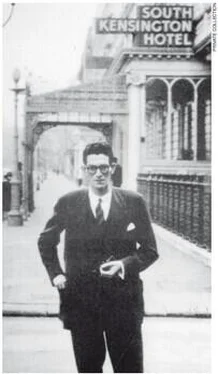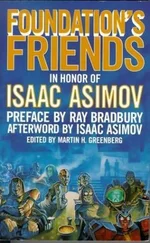Ben Macintyre - A Spy Among Friends
Здесь есть возможность читать онлайн «Ben Macintyre - A Spy Among Friends» весь текст электронной книги совершенно бесплатно (целиком полную версию без сокращений). В некоторых случаях можно слушать аудио, скачать через торрент в формате fb2 и присутствует краткое содержание. Год выпуска: 2014, ISBN: 2014, Издательство: Bloomsbury Publishing, Жанр: Старинная литература, на английском языке. Описание произведения, (предисловие) а так же отзывы посетителей доступны на портале библиотеки ЛибКат.
- Название:A Spy Among Friends
- Автор:
- Издательство:Bloomsbury Publishing
- Жанр:
- Год:2014
- ISBN:9781408851746
- Рейтинг книги:5 / 5. Голосов: 1
-
Избранное:Добавить в избранное
- Отзывы:
-
Ваша оценка:
- 100
- 1
- 2
- 3
- 4
- 5
A Spy Among Friends: краткое содержание, описание и аннотация
Предлагаем к чтению аннотацию, описание, краткое содержание или предисловие (зависит от того, что написал сам автор книги «A Spy Among Friends»). Если вы не нашли необходимую информацию о книге — напишите в комментариях, мы постараемся отыскать её.
A Spy Among Friends — читать онлайн бесплатно полную книгу (весь текст) целиком
Ниже представлен текст книги, разбитый по страницам. Система сохранения места последней прочитанной страницы, позволяет с удобством читать онлайн бесплатно книгу «A Spy Among Friends», без необходимости каждый раз заново искать на чём Вы остановились. Поставьте закладку, и сможете в любой момент перейти на страницу, на которой закончили чтение.
Интервал:
Закладка:
The Russian had ‘obviously been preparing his defection for a long time’, for his terms were precise: he would furnish the names of 314 Soviet agents in Turkey, and a further 250 in Britain; copies of certain documents handed over by Soviet spies in Britain were now in a suitcase in an empty apartment in Moscow. Once a deal was agreed, and Volkov and his wife were safely in the West, he would reveal the address, and MI6 could collect the papers. In exchange for this haul, Volkov demanded £50,000 (equivalent to about £1.6 million today), and political asylum in Britain under a new identity. ‘I consider this sum as a minimum considering the importance of the material given to you, as a result of which all my relatives living in the territory of the USSR are doomed.’ The Russian provided just enough detail to prove that his information was genuine: among the Soviet spies in important positions in Britain, he revealed, were seven in the British intelligence services or the Foreign Office. ‘I know, for instance, that one of these agents is fulfilling the functions of head of a section of the British counter-espionage service in London.’
Volkov insisted on several more conditions. On no account should the British allude to him in wireless messages, since the Soviets had broken the British codes and were reading everything sent through official channels; the Russians also had a spy inside the British embassy, so any paperwork relating to his offer should be closely guarded, and handwritten. All further communications would be through Chantry Page, who could contact him on routine consular business without raising suspicions among his Soviet colleagues. If he did not hear from Page within twenty-one days, he would assume the deal was off, and take his information elsewhere. Volkov’s nervousness was entirely understandable. As a veteran NKVD officer he knew exactly what Moscow Centre would do, and how quickly, if it got wind of his disloyalty.
The new British ambassador to Turkey, Sir Maurice Peterson, was allergic to spies. His predecessor, Knatchbull-Hugessen, had come horribly unstuck through the spy Cicero. Peterson wanted nothing to do with such people, and his reaction to Volkov’s approach was to shovel the whole thing, as fast as possible, onto MI6: ‘No one’s going to turn my embassy into a nest of spies . . . do it through London.’ Even the MI6 station chief in Istanbul, Cyril Machray, was kept in the dark. John Reed wrote up a report, by hand, and put it in the diplomatic bag. It landed on the desk of Sir Stewart Menzies ten days later. C immediately summoned his head of Soviet counter-espionage, Kim Philby, and handed him the report. Here was another potential intelligence coup, a trove of information that might, like the Vermehren defection two years earlier, change the game completely.
Philby read the memo with mounting, if hidden, horror: Volkov’s allusion to the Soviet spy running a counter-intelligence section in London could only refer to himself. Even if Volkov did not know his identity he had promised to hand over ‘copies of the material provided’ to Moscow, which would soon be traced back to him. The spies Volkov threatened to uncover in the Foreign Office must be Guy Burgess, now working in the news department, and Donald Maclean, first secretary at the British embassy in Washington. This lone defector had enough information to break up the entire Cambridge spy chain, expose the inner workings of Soviet intelligence, and destroy Philby himself. Struggling to compose his features, Philby stalled, telling C the Volkov approach was ‘something of the greatest importance’. He would ponder the memo overnight, he said, and report back in the morning.
‘That evening I worked late,’ Philby wrote many years later. ‘The situation seemed to call for urgent action of an extra-curricular nature.’ The insouciant tone is misleading: Philby was close to panic. He arranged a hasty meeting with Krötenschield, and told him what had happened. Max tried to calm him, in language that sounds like one Englishman discussing a cricket match with another: ‘Don’t worry, old man. We’ve seen a lot worse. The score will be settled in our favour.’ Philby should prevaricate, said Krötenschield, and try to control the situation. That evening, British radio interceptors picked up (but failed to attach any significance to) a sudden surge in coded radio messages passing from London to Moscow, followed by another increase in traffic between Moscow and Istanbul.
The next morning, Philby was back in C’s office, full of enthusiasm, since any hint of reluctance would look deeply suspicious if matters came to the crunch. ‘Someone fully briefed should be sent out to take charge of the case on the spot,’ he said, with the task of ‘meeting Volkov, bedding him down with his wife in one of our safe houses in Istanbul, and spiriting him away, with or without the connivance of the Turks, to British-occupied Egypt’. C agreed. In fact, he had met just the man for the job at White’s Club the night before: Brigadier Sir Douglas Roberts, head of Security Intelligence (Middle East) – SIME – based in Cairo, who happened to be in London on leave. Roberts was an experienced intelligence officer and a veteran anti-Bolshevik. Born in Odessa to an English father and Russian mother, he spoke Volkov’s language fluently. Indeed he was the only Russian-speaking intelligence officer in either the Middle East or London, which says much about MI6’s state of preparation for the Cold War. Roberts would be able to smuggle Volkov out of Istanbul with ease, and Philby knew it. All he could do was hope that his ‘work the night before would bear fruit before Roberts got his teeth into the case’.
Once again, Philby’s uncanny good fortune intervened. Brigadier Roberts was a brave man, a veteran of the First World War, but he had one fear: flying. Indeed, so extreme was his aviophobia that his job description explicitly excused him from having to fly anywhere. When asked to head to Istanbul at once and take over the Volkov case, he barked: ‘Don’t you read my contract? I don’t fly.’
The obvious replacement for Roberts was Nicholas Elliott. From Berne he could reach Istanbul, his old stamping ground, in a matter of hours. He had done a fine job of extracting Vermehren two years earlier, and had excellent contacts in Turkey. He even appears to have met Volkov at some point during his stint in Istanbul. But Elliott, precisely because of his suitability, was the last person Philby wanted to handle the case. For once, instead of delicately planting an idea on the boss and waiting for him to believe he had coined it, Philby directly intervened, and suggested that C send him to Turkey to extract Volkov in person. Menzies agreed, ‘with obvious relief’ at this bureaucratic problem solved. Philby now gave the impression of busily making preparations, while dragging his feet as slowly as possible. He first underwent a crash course in wireless coding, to ensure he could bypass the penetrated embassy systems, and then dawdled for three more days. When his plane finally took off for Cairo, it was diverted to Tunis, causing further delay. He was still en route when the Turkish consulate in Moscow issued visas for two Soviet ‘diplomatic couriers’ travelling to Istanbul.
Philby finally arrived in Turkey on 26 September 1945, twenty-two days after Volkov’s initial contact. The city was looking particularly beautiful in the late summer sun, but Philby grimly reflected that if he failed to prevent Volkov’s defection, ‘this might be the last memorable summer I was destined to enjoy’. When Reed asked him why MI6 had not sent someone sooner, Philby lied blandly: ‘Sorry, old man, it would have interfered with leave arrangements.’ Reed later found himself pondering the ‘inexplicable delays and evasions of Philby’s visit’, but at the time the Foreign Office man held his tongue. ‘I thought he was just irresponsible and incompetent.’
Читать дальшеИнтервал:
Закладка:
Похожие книги на «A Spy Among Friends»
Представляем Вашему вниманию похожие книги на «A Spy Among Friends» списком для выбора. Мы отобрали схожую по названию и смыслу литературу в надежде предоставить читателям больше вариантов отыскать новые, интересные, ещё непрочитанные произведения.
Обсуждение, отзывы о книге «A Spy Among Friends» и просто собственные мнения читателей. Оставьте ваши комментарии, напишите, что Вы думаете о произведении, его смысле или главных героях. Укажите что конкретно понравилось, а что нет, и почему Вы так считаете.












